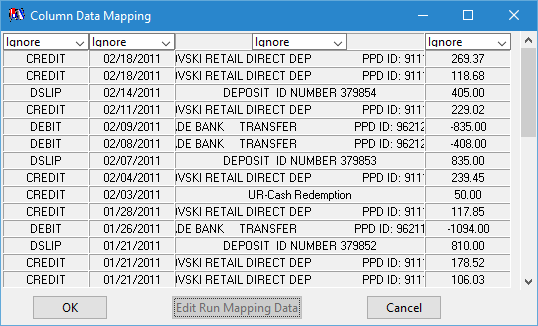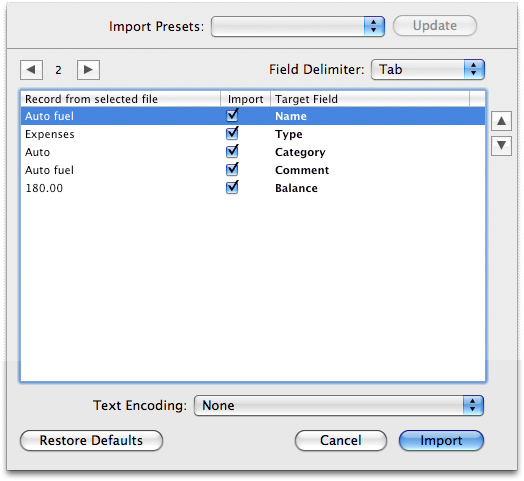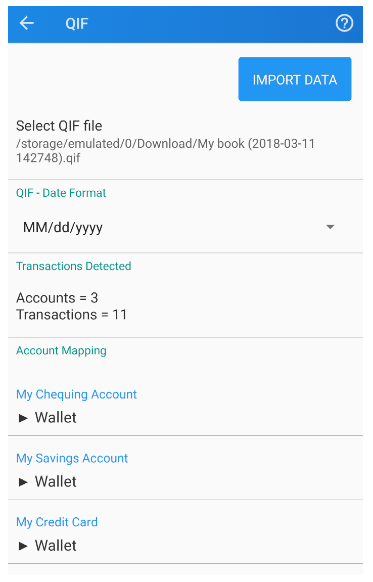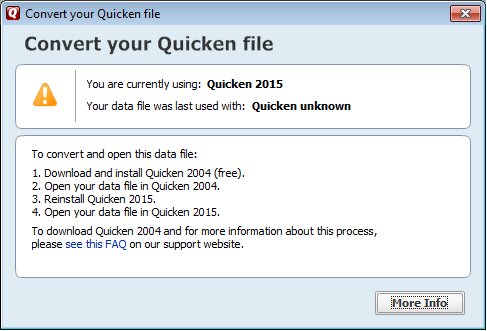

 CSV Separator: Enter the character used as a separator for each field. You are required to make further selections for your import file. Select the date format that matches your import file.Ĭhoose from Day/Month/Year, Month/Day/Year or Year/Month/Day.Īfter this step, click the Accept button. If you have a single QIF QFX, or OFX file you can import this in one go by selecting the option to, otherwise you would need to export and import accounts one at a time.Īfter this step, click the Accept button. Select the account you’re importing into or click Add Account to add a new account. Go to the Import option, select the File menu, and select File Import.Īfter selecting your file, you’ll see the import dialogue box. This can easily be done by exporting a QIF, QFX, OFX from the relevant application. The file has to be a QIF, QFX or OFX file. If you have a Microsoft Money file, such as a MNY extension or a Quicken data file with a QDF extension, this won’t import. Importing OFX/QFX Files: The following transactions can be imported: bank transactions, cash transactions, credit card transactions, investment transactions. Importing QIF Files: The following transactions can be imported: bank transactions, cash transactions, credit card transactions, investment transactions, other liability transactions, and other asset transactions. Multiple account files for QIF and QFX, OFX files are also supported.
CSV Separator: Enter the character used as a separator for each field. You are required to make further selections for your import file. Select the date format that matches your import file.Ĭhoose from Day/Month/Year, Month/Day/Year or Year/Month/Day.Īfter this step, click the Accept button. If you have a single QIF QFX, or OFX file you can import this in one go by selecting the option to, otherwise you would need to export and import accounts one at a time.Īfter this step, click the Accept button. Select the account you’re importing into or click Add Account to add a new account. Go to the Import option, select the File menu, and select File Import.Īfter selecting your file, you’ll see the import dialogue box. This can easily be done by exporting a QIF, QFX, OFX from the relevant application. The file has to be a QIF, QFX or OFX file. If you have a Microsoft Money file, such as a MNY extension or a Quicken data file with a QDF extension, this won’t import. Importing OFX/QFX Files: The following transactions can be imported: bank transactions, cash transactions, credit card transactions, investment transactions. Importing QIF Files: The following transactions can be imported: bank transactions, cash transactions, credit card transactions, investment transactions, other liability transactions, and other asset transactions. Multiple account files for QIF and QFX, OFX files are also supported. 
Any application that has generated these formats should be compatible. The OFX and QIF file formats are industry standard formats. Support for native CSV (comma separated value) ASCII or binary format is also included.

BankTree Personal Finance 3.0 - File ImportsīankTree Personal Finance supports a variety of file import formats that include support for Microsoft Money and Quicken OFX, QFX, QIF file formats.








 0 kommentar(er)
0 kommentar(er)
